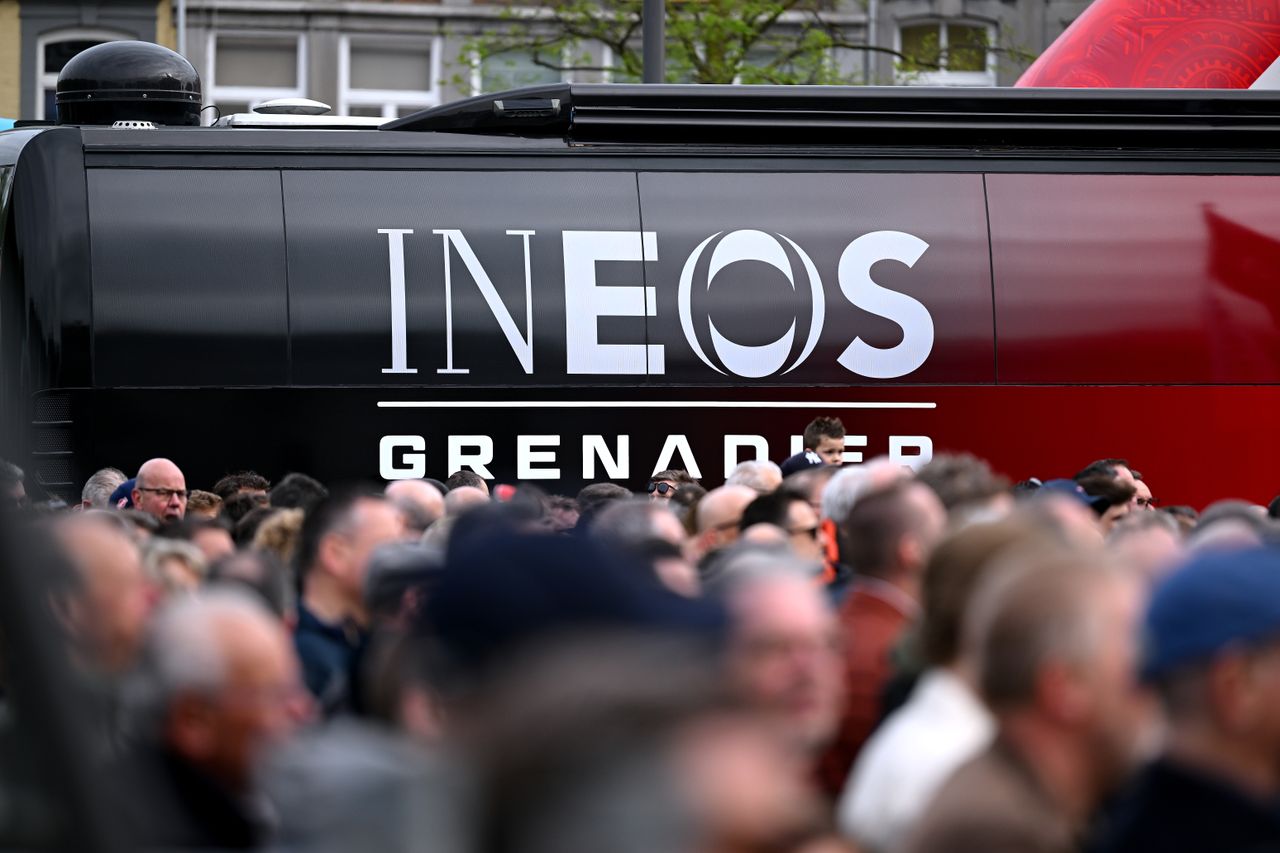
Ineos Grenadiers have asked the International Testing Agency, the body that oversees cycling’s anti-doping programme, to hand over “any information it considers relevant” after reports in Germany unearthed an apparent connection between a long-time and current team staff member and the doctor behind a notorious doping ring.
In June, a few weeks before the Tour de France began, a documentary from the German public service broadcaster ARD claimed a Team Sky worker was in direct communication with the German doctor Mark Schmidt in 2012.
Schmidt was sentenced to four years and 10 months in prison in 2021 as part of Operation Aderlass after being found guilty of organising and orchestrating a doping programme that led to the suspensions of 11 cyclists and nine cross-country skiers.
According to ARD, court papers in the Aderlass case found a series of messages between the Team Sky staff member and Schmidt in 2012. One, sent by the Sky staffer a few weeks prior to Sky’s first ever Tour de France win, asked Schmidt: “Do you still have any of the stuff Milram used during the races? If so, can you bring it for the boys?”
Milram was an Italian-German professional cycling team from 2006 to 2010. During the 2007 Giro d’Italia, their rider Alessandro Petacchi was found guilty of using the substance salbutamol. He was sacked by Milram a year later.
ARD also claimed that the Sky worker invited Schmidt to the team’s hotel on July 6, allegedly to have a beer. The day after Chris Froome won the stage to La Planche de Belles Filles, and Bradley Wiggins took the yellow jersey; he would go on to win the race, with Froome in second.
ARD did not name the staff member because the 10-year statute of limitation had expired. For the same reason, Cycling Weekly has chosen not to identify the individual, who still works for the team.
On Thursday evening, following the conclusion of stage 12 of the current Tour, Ineos Grenadiers – which is a continuation of Team Sky, with a different title sponsor and name – released a statement.
“Ineos Grenadiers Cycling Team is aware of recent media allegations relating to the 2012 season and a member of its staff,” it read. “These allegations have not to date been presented to the team by any appropriate authority, however the team has made a formal request to the International Testing Agency (ITA) to request any information it considers relevant.
“The team reiterates its policy of zero tolerance to any breach of the applicable WADA code, historic or current.”
Sir David Brailsford, the team’s founder, is on the ground at the ongoing Tour de France, but he has consistently refused to speak to the media. After stage 10, Cycling Weekly approached Brailsford for comment on this matter and others.
Once other journalists appeared and asked him about the allegations, Brailsford repeated that he wouldn’t be making any comments, and swore at the reporters as he made his way onto the team bus.
In the 16-year existence of Team Sky/Ineos Grenadiers, no rider has ever been found guilty of doping while riding for the team.
However, the team have faced a number of questions in the past decade. In their early years, they hired Geert Leinders as their doctor; Leinders was associated with the doping that took place at the Rabobank team in the 2000s, and was banned for life in 2015.
Then, Sky’s former doctor, Richard Freeman, was stripped of his right to practice medicine in 2021 after being found guilty of ordering banned testosterone “knowing or believing” it was to be given to an unnamed rider to enhance their performance. In 2023 he was given a four-year suspension by UK Anti-Doping.
There was also the infamous jiffy bag case which led to Brailsford appearing before politicians at a terse Department of Culture, Media and Sport (DCMS) hearing in 2018. They concluded that Sky had “crossed an ethical line”.
Wiggins, it was also retrospectively revealed, used a Therapeutic Exemption Order (TUE) for triamcinolone in 2011, 2012 and 2013, while during the 2017 Vuelta a España, Froome returned an adverse analytics finding for salbutamol. The UCI dropped the case in July 2018.
In October 2012, Brailsford announced that Sky would be enacting a new zero tolerance policy and not allow anyone to work for them who had been involved with doping in a previous team. It led to four people leaving the team.







